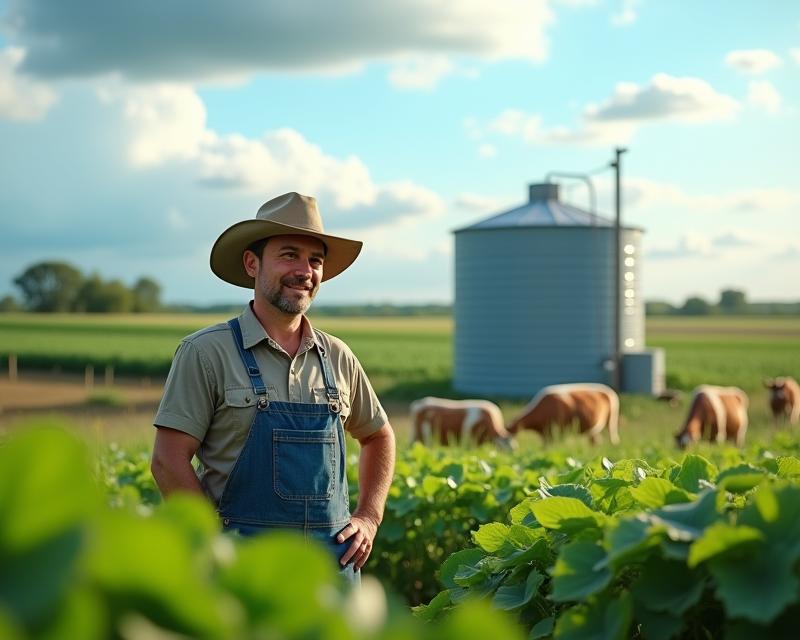Sustainable Water for Your Farm
Publish in Sustainable Farming el 28/06/2025 22:16
Sustainable Water Systems for a Thriving Farm
Water is the lifeblood of any farm. Efficient and sustainable water management is no longer a luxury, but a necessity for long-term success and environmental responsibility. As climate patterns shift and water resources become increasingly scarce, farmers must adopt innovative strategies to conserve water, improve irrigation efficiency, and protect water quality. This article explores practical approaches to creating a sustainable water system for your farm, benefiting both your yields and the planet.

Rainwater Harvesting: Capturing Nature's Gift
One of the simplest and most cost-effective methods for sustainable water management is rainwater harvesting. This involves collecting rainwater from rooftops, paved surfaces, and other catchment areas. The collected water can then be stored in tanks, cisterns, or even underground reservoirs for later use in irrigation, livestock watering, or even household purposes (where permitted by local regulations). Rainwater is naturally soft and free of chemicals, making it ideal for many agricultural applications. Consider the size of your catchment area and storage capacity based on your farm's water needs and rainfall patterns. Proper filtration systems are crucial to remove debris and ensure water quality.
Efficient Irrigation Techniques: Minimizing Water Waste
Traditional flood irrigation is notoriously inefficient, leading to significant water loss through runoff and evaporation. Switching to more efficient irrigation techniques can dramatically reduce water consumption. Drip irrigation, which delivers water directly to the plant roots, is an excellent option for row crops, orchards, and vineyards. Micro-sprinklers offer another efficient method for irrigating larger areas. Consider soil moisture sensors to automate irrigation based on actual plant needs, preventing overwatering. Regularly inspect your irrigation system for leaks and clogs to maintain optimal performance.
Water Recycling and Greywater Systems: Closing the Loop
Explore opportunities to recycle water on your farm. Greywater, which is wastewater from sinks, showers, and laundry (excluding toilet water), can be treated and reused for irrigation of non-edible plants or for flushing toilets. Constructing constructed wetlands can provide natural filtration for greywater, making it safe for reuse. For livestock farms, manure management systems can be designed to capture and treat water runoff, reducing pollution and providing a valuable resource for irrigation. Implementing these closed-loop systems minimizes water waste and promotes a circular economy on your farm. Always adhere to local regulations regarding water recycling and greywater use.
Monitoring and Conservation: A Continuous Process
Sustainable water management is not a one-time fix; it requires ongoing monitoring and conservation efforts. Regularly assess your water usage, identify areas for improvement, and adapt your strategies as needed. Invest in water-efficient equipment, promote water conservation practices among farmworkers, and educate yourself about best practices in water management. By embracing these strategies, you can create a resilient and sustainable water system that supports your farm's productivity and protects valuable water resources for future generations.





